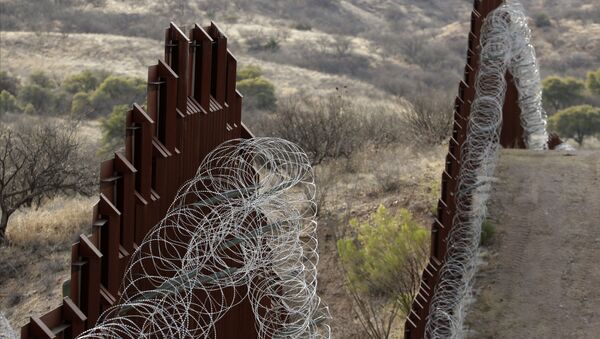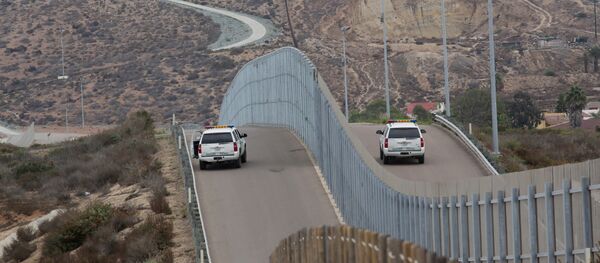Auto companies, in particular, have said that completely closing the border would lead to the disruption of their operations because they rely on deliveries of components made in Mexico.
Earlier, Mexico said it does not plan to block migrant caravans travelling from Central America to the US, but will try to regulate the process and maintain security. That's according to the country's Interior Secretary Olga Sanches Cordero, who said that the government does not intend to militarize its southern border. According to the country's Ministry of Internal Affairs, more than 76 thousand migrants trying to cross the US border were detained in February. In March, this figure could reach 100 thousand people.
Meanwhile, the media reported that President Trump is considering appointing an immigration coordinator to oversee efforts to contain the surge of migrant crossings. Former Kansas secretary of state Kris Kobach and former Virginia attorney general Ken Cuccinelli are possible candidates for the post, according to CNN.
Radio Sputnik has discussed President Trump's plans to close the US-Mexico border with Mark Jones, Chair in Latin American Studies and Director of the Master of Global Affairs Program at Rice University.
Sputnik: My first question, of course, is why has President Trump softened his stance regarding the US border closure?
Mark Jones: Well, the president received quite a bit of negative reaction both from business leaders but also from fellow Republicans who are fully aware that any shutdown at the US-Mexico border would be catastrophic for the US economy. That would cripple a large number of industries as well as raise food prices and effectively have a very negative impact on the US economy. So, they are pushing back and the president is now looking for alternatives that would allow him to shut down the border for some things but not adversely affect industry.
Sputnik: How likely is he to be allowed to proceed with the move to close the border? And do you think a certain length of time will be required? Because you are saying that he would have to review which aspects of it might affect the economy and some obviously might not to that extent. So that would require time, wouldn't it?
Mark Jones: Well, it would and I think at this point the president realises that he can't just shut down the border. That it isn't really even fully Mexican President Andrés Manuel López Obrador. What he can do is perhaps try to find some targeted [measures] that wouldn't hurt the United States as much. And that one option that is being looked at is allowing continued flow of trucks and rail across the border but putting some restrictions on individuals crossing the border, which would be felt in Mexico but also would have a very strong negative impact in many American communities along the border that depend on those shoppers to bolster their economies.
Sputnik: The targeted measures that you have just mentioned, are they a new development? Or was this initially mentioned?
Mark Jones: No, there was news right after the president was effectively told by everyone that he simply cannot shut down the border. As much as he may want to as much as he may when he used that as a negotiating tactic the results would be so negative to the US economy that he can't do it. So, what they are looking for is to try to find some way to punish Mexico via shutting the border or at least closing parts of the border without adversely affecting the flow of goods that would cripple the US economy. That's easier said than done. And really what the president is trying to do here is get the Mexican government to stop more migrants when they cross the southern Mexican border from Guatemala and keep them down in Guatemala as opposed to having them cross the border in the United States, where and as you have mentioned earlier we are approaching a 100.000 a month now coming from Central America.
Mark Jones: You are not going to get someone on the left like Mexican President Andrés Manuel López Obrador to use the military to actually stop migrants. But there is more they can do to make it a little more difficult to cross the southern border as well as work with the Trump administration to effectively house or at least keep many people seeking asylum in the United States on the Mexican side for a longer period of time. There is probably something that Mexico can do that would ameliorate some of the concerns of the president that by and large, i.e. if President Trump thinks that Mexican President Andrés Manuel López Obrador is going to militarise his southern border, he is so mistaken.
Sputnik: Let's talk about the technical side of it. Is it technically possible to close the border? What kind of actions would it entail?
Mark Jones: Closing the border is relatively simple. You simply stop allowing any movement going either north or south. That would just be so devastating for our economy. Right now half of US produce: the tomatoes, avocados, lettuce comes from Mexico at this time of year. So, it is the impact we would feel in a week across the United States in terms of shortages of fresh produce. We would start to see the auto industry shut down within a week because it depends on just-in-time parts arriving from the Mexican side. So that is not very possible. It would be possible, for instance, to delay or restrict some Mexicans from crossing over to the United States. But overall, if the president really wants to hurt Mexico, he would need to shut down the border. Which would hurt Mexico more than the United States but that's, I like saying ‘it would mortally wound Mexico while just crippling the United States'.
Sputnik: What kind of a timeline are we looking at if this whole issue is going to be reviewed now to find ways of perhaps mitigating the effects of a border shutdown? When could actually something happen?
Mark Jones: If it is going to happen it would happen in the next week or two because right now we are at the highest time of the migration season, it's spring when the weather is still relatively cool and people don't have to cross the deserts in the summer. So if it is going to occur, it would occur sometime during the month of April. Because once you hit May or June, the highest peaks of migration will have passed. I think right now many of President Trump's advisors are probably hoping to stall the president and hope that he focuses on another topic and forgets any idea of closing the US-Mexico border. Just because however you do it — it is going to be bad for the United States.
The views and opinions expressed in this article are solely those of the speaker and do not necessarily reflect official position of Sputnik



